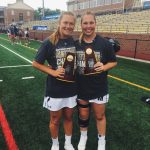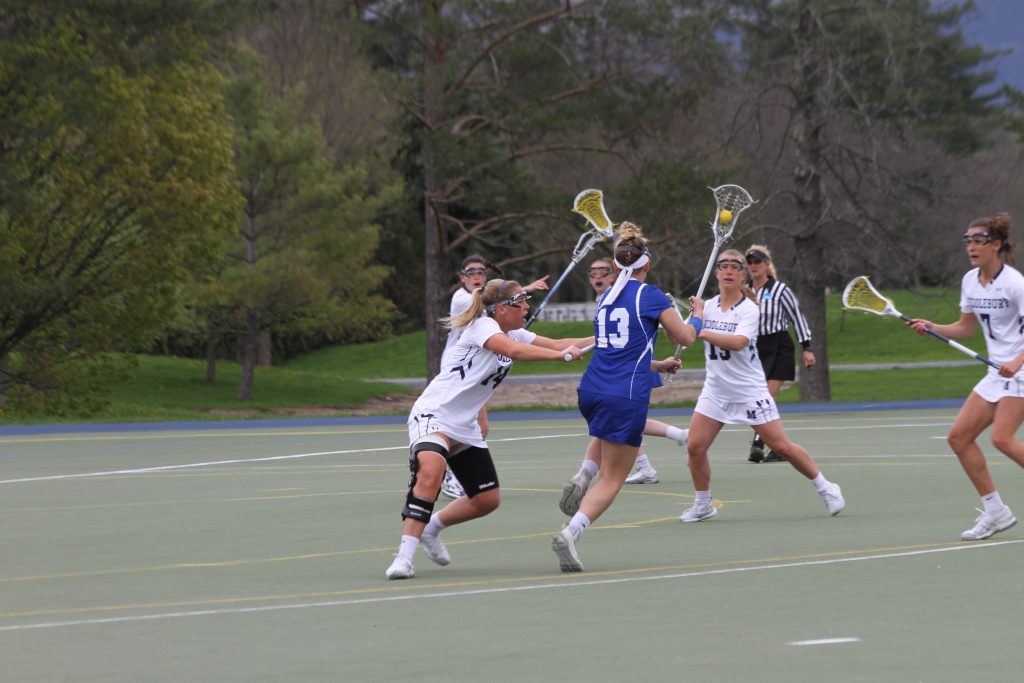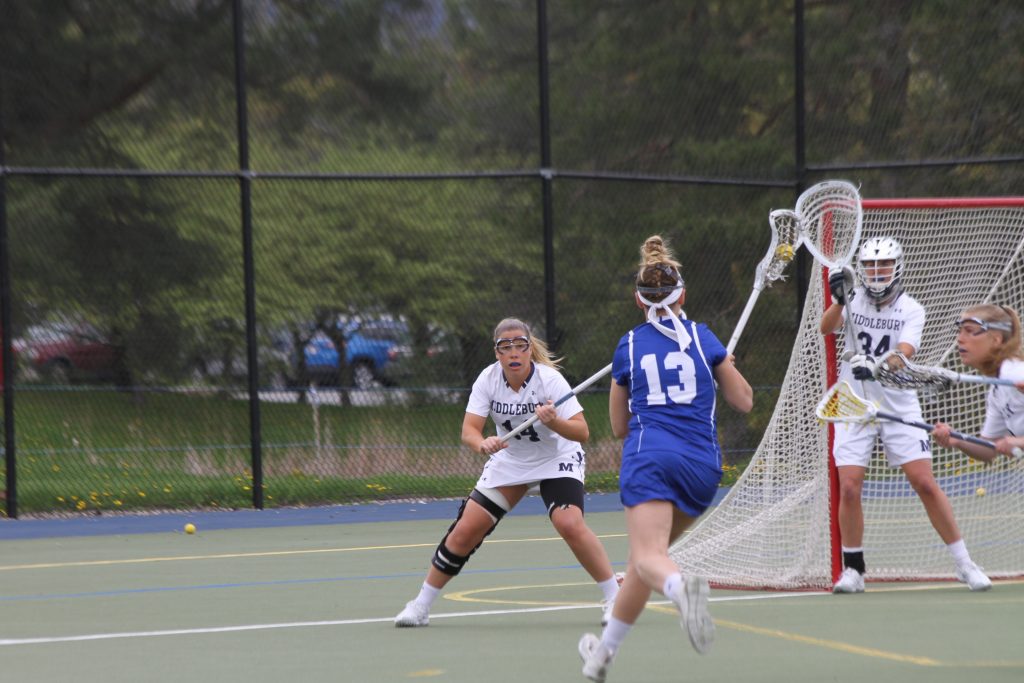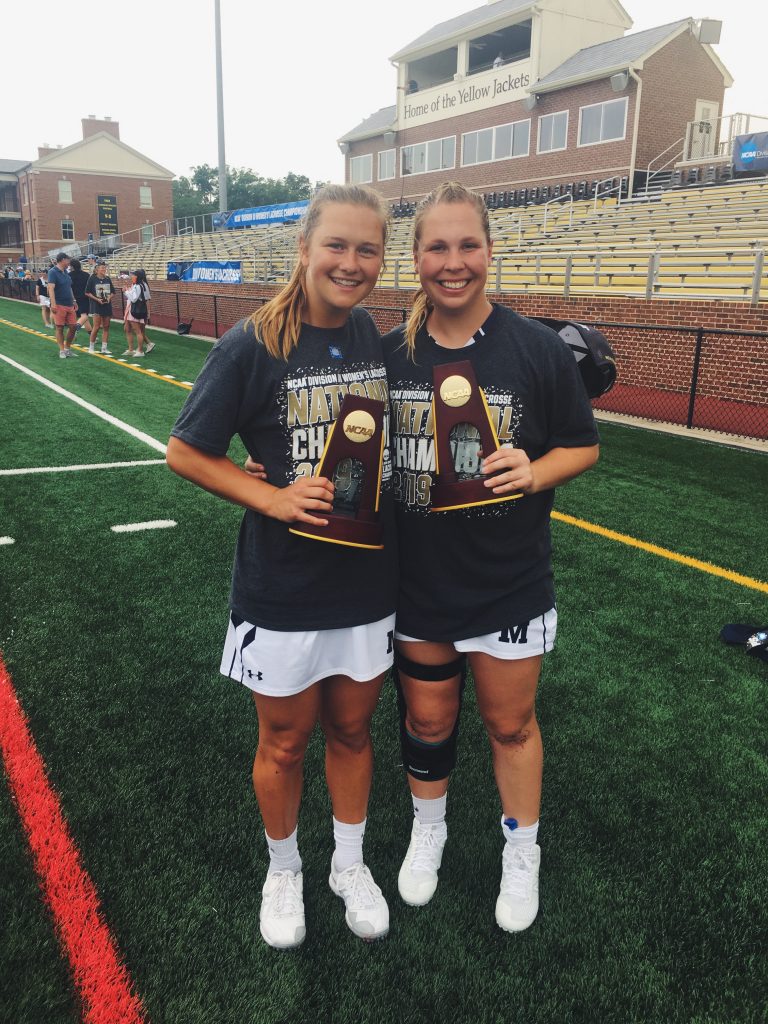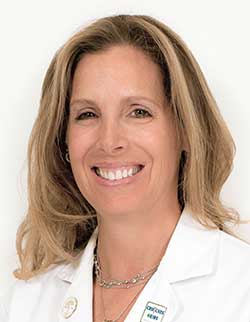Have you ever had the feeling that you were underperforming? Not living up to your potential? Mentally giving your all, but for some reason, your body won’t perform? This feeling of inadequacy and lost potential is what defined my junior year of college lacrosse.
My name is Campbell Goldsmith and I recently graduated from Middlebury College where I was a member of the women’s varsity lacrosse team for four years. Playing college lacrosse is no small feat, especially for one of the top D3 programs in the nation. Late-night practices, early morning lifts, shooting school, conditioning, it all really takes a toll on your body. I first started experiencing knee problems my freshman year of high school. In high school, I played three varsity sports (soccer, basketball, and lacrosse) for all four years, with the end desire of playing lacrosse at Middlebury. My first knee issue occurred when I was 15 during one of my basketball games. I had a breakaway and went up for a layup, got hip-checked (made the basket!), and ended up dislocating my right patella. My knee immediately swelled up, I could not walk, and the pain was immense. The next day my mom took me to Hospital for Special Surgery for the first of many visits. After an MRI I was diagnosed with a dislocated kneecap, sent home with a locking brace, crutches, and a prescription for physical therapy, in hopes that I would be healthy enough to return for lacrosse season in the spring. Throughout the next four years of my athletic career, I experienced two torn MCLs playing basketball and soccer, broken ankles, and lastly a second patella dislocation resulting in surgery. I had an MPFL (medial patellofemoral ligament) reconstruction done after my junior year of high school and was able to return by the end of August for preseason camp. While I was a little out of shape getting back into soccer, I was able to play the entire season with no pain or re-dislocations, and this continued until my junior year of college playing lacrosse for Middlebury.
In the winter of 2017, I had just returned from my semester abroad and was in the gym every day trying to get in shape for lacrosse. I was pushing my pace on the treadmill, lifting every day, probably too much than my body could handle. I started to experience severe knee pain while running and throughout my junior season of lacrosse I struggled every day. Every practice I had to take at least 3 ibuprofen to get through the pain, ice bath after, and continual visits to the training room to try and fix a problem that seemed unfixable at the time. My parents and trainers kept pushing me to go the doctor mid-season, but I was afraid they would tell me I could not play, so I pushed the visit off until literally the day after our season ended. This is when I visited Dr. Shubin Stein for the first time! I had an MRI done in January, so she reviewed the scans with me and said that I had two options due to my knee pain and cartilage loss: 1) I could try lubricating injections and PT for a few months and see if this would resolve the problem or 2) undergo a tibial tubercle osteotomy with a cartilage replacement. While it was upsetting to find out that at 21 I already had damage to my cartilage in my knee, it was so reassuring to finally have an answer that no one else could give me. Undergoing the surgery would be a long process and a much more intense surgery than my first. I would be late coming into lacrosse season and going into senior year on crutches was not exactly ideal. So, my parents and I went back Dr. Shubin Stein for a second visit to ask our million questions about the surgery. Dr. Shubin Stein was extremely comforting and reassuring throughout the whole process, and I felt very confident under her care! I had the surgery done on June 14th of 2018, and it was discovered that I had additionally lost all of my cartilage underneath my kneecap. I was given stem cell treatment under the kneecap and a cartilage plug between my femur and tibia. The recovery was long and grueling, but 6 weeks later when I was able to weight bare and get out of the huge locking brace. I was able to start biking about 3-4 months post-surgery and received physical therapy by my trainer up at school. By the time lacrosse season came around in February, I was still not able to run (which was expected) but could bike and elliptical on the sidelines during the -10-degree weather while my teammates practiced. While it honestly sucked not being able to partake in practice, I gained a new leadership role on the sidelines. Finally, about 7-8 months post-surgery I got the OK to start running! I was pumped! And after a couple of weeks I was cleared to start practicing! However, I got a little too excited as I was only supposed to participate in about ½ of practice, I decided to do full-on practices thinking that I could handle it. By the end of about 2-3 weeks, I was experiencing a different kind of pain in my knee, and I was terrified. I went back to Dr. Shubin Stein and had a subsequent MRI to find out that I had a stress fracture in my tibia. The fracture had nothing to do with the surgery and was most likely due to the change in physics to my knees, going too hard too fast, or the surface I was playing on. Whatever the cause, I was out for another month with another brace.
However, throughout this whole process Dr. Shubin Stein, her nurse practitioner Sarah Tyron, and her entire team were so comforting. Dr. Shubin Stein reassured me that she understood my circumstances and that I would be back for a few games at the end of the season to finish out my lacrosse career. While devastating to find out about my stress fracture, I knew Dr. Shubin Stein had my back, and I would be back for the end of the season. Finally, May came around, and once again I was cleared to play! Slowly amping up my practice time, I finally was able to suit up for NCAA game time. In our second-round game of NCAA’s, I stepped on the field for the first time of my senior year. It was exhilarating, emotional, and competitive all at the same time. I was Back in the Game. From there my team and I ended up finishing the season with a record of 22-1, a NESCAC Championship, and a Division III Women’s Lacrosse National Championship. I am so grateful for my teammates, coaches, parents, trainers, and physical therapists who stood by me during this whole process, and I am even more grateful for Dr. Shubin Stein and her team for never letting me put my head down and getting me Back in the Game. Without them, my senior lacrosse season would have truly been over before it even started. So, from the bottom of my heart, thank you!



